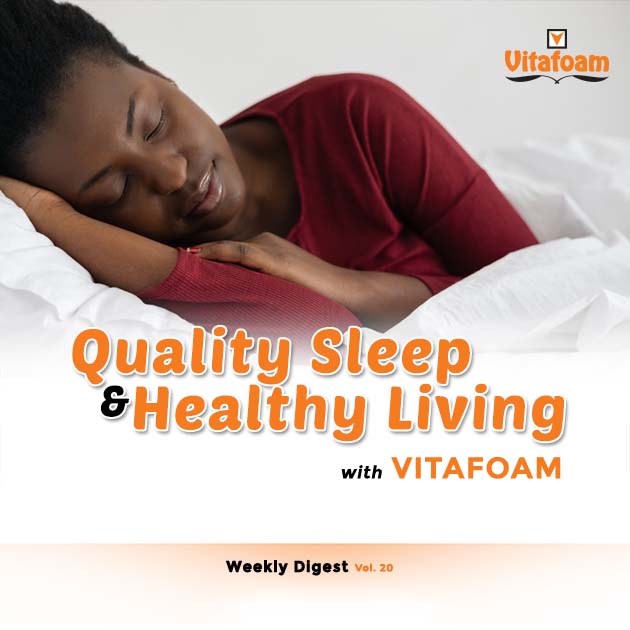
For a lot of us, discussion on the recommended seven to nine hours of sleep per night for adults sound impractical.
How?
Indeed, no one is to be blamed for such a realistic perception, considering what we face in our daily work and family life. Our busy schedules with inadequate time for sleep can be due to long work hours from one and multiple jobs, irregular work schedules and shifts, family and social responsibilities, stressful projects of vast scopes and targets dressed in tight-fitting deadlines, or prolonged transport to and from the workplace and home due to long distance and traffic jams.
The endpoint of the different scenarios is that we are not getting the recommended seven to nine hours of sleep per night. And the bottom line is that we need to rethink our schedules and figure out how to fit into our regular work schedules without sacrificing that sleep.
We will consider how to balance the available time & resources with our household and workplace tasks towards the realization of our sleep needs;
The first step in rethinking our schedule is an intentional change of mindset to appreciate sleep. Remind ourselves that sleep is the foundation of life. If we do not sleep, we will not survive. Sleep gives us energy, makes us smarter, healthier.
Secondly, we review the daily activities with the matched time stamps. Considering the recommended 7 – 9 hours of sleep out of the day’s 24 hours, we are left with about 16 hours of wakefulness to be spent on the day’s activities. Imagine, Mimi, a typical young mum of two young children, who has an 8 am – 5 pm job. Her work attendance target is to arrive workplace before the resumption time of 8 am. To achieve this she wakes up by 4 am, undertakes household preparations for all including her hubby and kids, hurries over self-grooming, hits the road latest by 5.30 am – 6.00 am to beat the traffic congestion of rush hours, and eventually arrives at the workplace between 7.00 am – 7.30 am.
She takes her breakfast at the office. Dutifully, the job schedule rolls on over the day with intervening one (1) hour lunch break 12noon and 2.00 pm which is usually spent catching up with trending gist among co-workers. By 4.00 pm, the office closes to external customers, and Mimi is left with transactional documentation to be concluded around 5.00 pm – 6.00 pm. Between 6.00 pm and 7.00 pm, the journey back home begins and stretches through reversed traffic congestion allowing her to get home by 8.00 pm – 10.00 pm. At home, 1 to 2 hours would be spent catching up with household maintenance, self-clean-up, social media and sometimes online work issues. Finally, she would crash into sleep between 11.00 pm and 12.00 midnight, to wake up at the bang of the alarm by 4 am after 4 – 5 hours of sleep.
Going through the tight schedule, we can extract modifiable time frames. Mimi should relax the alarm time to 5.00 am, compress the household preparations by doing some initial processes before sleep and hasting over the self-grooming. An hour is gained. The break time would be maximized by squeezing in a 10-20mins nap. The sleep will help Mimi to function better in the remaining work hours, helping her to finish clean-up documentation earlier. She then sets off for home earlier between 5.00 pm and 6.00 pm.
Another hour got back. When she gets home earlier by 7.00 pm – 9.00 pm, she would intentionally trim down the time spent on phone screens, paying more attention to household maintenance to accommodate some of the processes for the morning runs in advance. By doing so, she would be in bed ready for sleep earlier by 9.00 pm – 10.00 pm, thereby earning the third hour.
In all, from the time adjustment for the activities, extra 3 hours have been earned pushing the sleep time to 7 – 8 hours.
In conclusion
Now, it is time to apply what you just read. The goal is to help you get the recommended sleeping routine, which will make you energetic, more creative, more joyful, and help you to age better!

Are you currently facing any sleeping difficulty or looking for the best way to maintain quality sleep for generally wellbeing and healthy living?
A certified specialist is best fit to offer relevant advice for maintenance of quality sleep, sleep difficulties and solution.
Do you want to contact the Orthopaedic Sleep Consultant, Dr Charles Uzodimma, kindly send your request to sleepinfo@vitafoam.com.ng or Whatsapp 08129982143
Vitafoam is passionate about quality sleep, healthy living and general wellbeing of Nigerians. We are proudly Nigerian and constantly supports Nigerians with consistent quality products for comfort and wellbeing.
4 thoughts on “Don’t have enough time for sleep, rethink your schedule!”
I’m 55years old I think I’ll either orthopedic or semi orthopedic I use to have neck and waist arches and pains sometime please kindly advise me. Thanks.
Dear Cyprian,
Thank you for choosing Vitafoam Ng.
Please call or WhatsApp 08129982143 to speak to a representative.
I will like to buy a suitable orthopaedic mattress foam 6×7 and 3 quality pillows for my house. I feel a lot of back ache and neck pain when I wake up from bed. I’m over 50 years old
Dear Lawrence,
Thank you for choosing Vitafoam Ng.
Please call or WhatsApp 08129982143 to speak to a representative.